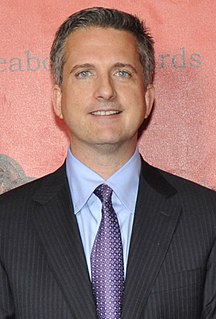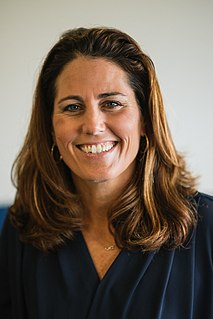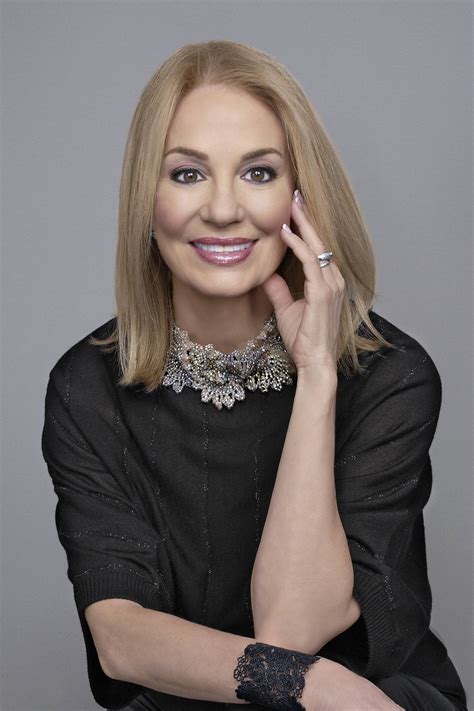A Quote by Rosabeth Moss Kanter
"Leadership" is a big topic today. We know that the world - nations and communities in addition to companies - needs more and better leaders. So I wanted to explore how leaders make a difference, how they can shift a negative cycle, turn around a losing organization, propel a team to victory when conditions aren't perfect. I saw that what leaders do is build confidence in advance of victory. Then the confidence they produce makes the hope of success turn into the reality of success, because people behave differently when they are surrounded by a culture of confidence.
Quote Topics
Addition
Advance
Around
Because
Behave
Better
Big
Build
Communities
Companies
Conditions
Confidence
Culture
Cycle
Difference
Differently
Explore
Hope
Hope Of Success
How
Know
Leaders
Leadership
Losing
Make
Make A Difference
Makes
More
Nations
Needs
Negative
Organization
People
Perfect
Produce
Propel
Reality
Saw
Shift
Success
Surrounded
Team
Then
Today
Topic
Turn
Victory
Wanted
World
Related Quotes
Confidence is not lodged in people's brains, it comes from the support system that surrounds them. Let's not confuse confidence overall with just self-confidence. Self-confidence is only one part of confidence. People also need confidence in others - their colleagues and leaders - that they can count on them to do the right thing and not to let them down.
The success of corporate mentorship programs developed by some of the Great Teams in business demonstrates how powerful this concept can be and what a difference it can make. As General Electric has shown, when a corporate culture includes mentorship, the end result is a dynamic learning environment with leaders constantly shaping leaders.
If we want leaders to make good decisions amid huge complexity, and learn how to build great teams, then we should send them to learn from people who've proved they can do it. Instead of long summer holidays, embed aspirant leaders with Larry Page or James Dyson so they can experience successful leadership.
I would hesitate to use the word 'success' in the way many people do. I don't know that I would apply it to what I've done as though I have now reached the ultimate goal. To me success is a continuing thing. It is growth and development. It is achieving one thing and using that as a stepping stone to achieve something else. Success comes as you have confidence in yourself. Self-confidence is built by succeeding, even if the success is small. It is the believing that makes it possible.
Micromanaging erodes people's confidence, making them overly dependennt on their leaders. Well-meaning leaders inadvertently sabotage their teams by rushing to the rescue and offering too much help. A leader needs to balance assistance with wu wei, backing off long enough to let people learn from their mistakes and develop competence.
I'm not sure leaders listen enough, especially to their people. And I've always thought in everything I've tried to do in my life, in the jobs I've had, is that if we can turn our transmitters off and our receivers on more often, we're better leaders and we know more of what is going on and therefore we can lead more effectively.
You have to work and think about how we can make this world a better place for all. This is what I'd really like to ask our young leaders. We will try as leaders of today to minimise the problems which we will hand over to you. But it is to you. You have to take ownership and leadership of tomorrow. For that to be possible, you have to strengthen your capacity and widen your vision as a global citizen.
If America is to compete effectively in world markets, its corporate leaders must strategically position their companies in the right businesses, and then manage their workforces in the right ways. However, the nation has a shortage of business leaders who understand the importance of utilizing human capital to gain competitive advantage, let alone the know-how to do so. In the future, that shortcoming promises to be exacerbated because few business schools today teach aspiring executives how to create the kind of high-involvement organizations.


































